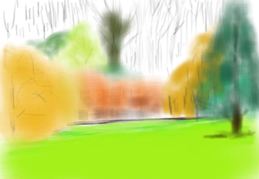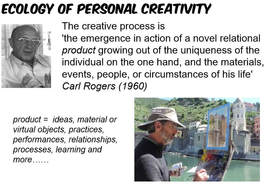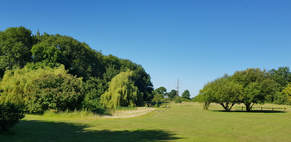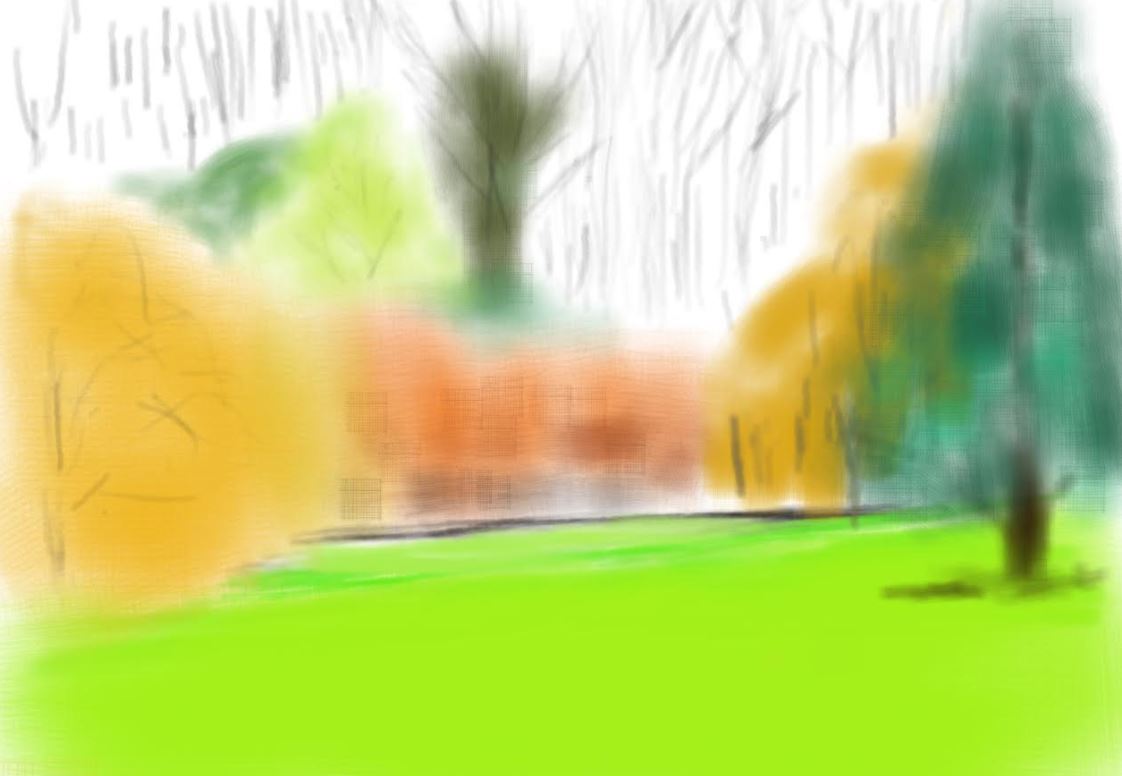| I'm experimenting with 1 minute movies to capture learning that can be gained from the natural environment of a garden. I have been influenced by Gillian Judson's idea of Imaginative Ecological Education http://ierg.ca/IEE/ and Walking Curriculum. Imaginative Ecological Education is a place-based and context / situation specific approach to learning which aims to develop learners’ somatic (bodily), emotional, and imaginative bonds with the natural world generally, and with specific places in particular. | |

1 sense of relation: the innate human desire to form relationships and, in this way, to engage with our surroundings.
2 emotional attachments with features or objects in the world we encounter or make
3 Creating or claiming special places/spaces By exploring the natural world and creating special places in it and in our imaginations we not only develop knowledge of the natural context but we develop emotional connections with it.
I would like to include a fourth tool that uses imagination to connect us in ways that are personally meaningful to our environment.
4 Creating cultural artefacts By making an artefact with cultural meaning that has been grown in the natural world when we connect our imaginations, emotions, physical bodies and creativity to a particular place and moment(s) in time..
Making cultural artefacts such as photographs, drawings, paintings, movies, digital stories, poems or other creatve writings, or any other form of self-expression are important means for us to connect and relate ourselves and our lives to the natural environment. Through the process of making (creating) we create emotional attachments to the environment, and create special places in the environment and in our imaginations. While the product (the artefact) enables us to share our meaning making with others, and this can be facilitated through the sorts of technology I am using here (a blog).


'Perhaps the most important benefit of gardening is the freedom to establish and define one’s own territory, vital for many animals in creating confidence in the security of the immediate environment. In our own garden we can make our own decisions, give free rein to our creative impulses, make our own mistakes, and learn from them, change our minds, watch and observe the consequences of our actions, gain some insight into natural processes, and tie ourselves to the rhythm of the seasons.'(4:164)
Gardens come in all shapes and sizes, and when cared for by their owners they require imagination in designing the space, the development of specific knowledge about plants and soils and their nurturing, and effort and resources to develop, maintain and sustain them over a long period of time. They are an important part of our everyday self-expression and become part of our cultural legacy as they are passed from one owner to another. Indeed, as gardeners we are as much curators (I am the third curator of my garden) as we are creators. And through our hands on involvement, they are also the means by which we come to understand the nature of nature as we engage in the process of making and maintaining. Neither a work of nature nor one of art we get to know when they have been finished; we must surprise them in the process of being created so as to understand them to some degree.(J Goethe cited in 5). A view that is shared by Seddon(4) who regards gardening not as a retreat but as an entrée into the world: ‘In one’s own garden, one is in contact with the whole globe, both cognitively and imaginatively’.
I will be trying out these ideas and using the approach of growing cultural artefacts inspired by my garden with a small group of education masters students from Beijing Normal University who will be visiting me later this week. You can see what the BNU students made of the idea here.
Here is my initial experiment in response to the prompt - create a 1min movie (cultural artefact) inspired by the garden that relates the garden and gardening to learning, development, education and/or teaching?
1 Judson, G. (2018) Cultivating Ecological Understanding and Engagement with the World through Imaginative Ecological Education Lifewide Magazine #20
http://www.lifewideeducation.uk/magazine.html
2 Gauntlet, D. (2011) Making is Connecting, The social meaning of creativity, from DIY and knitting to YouTube and Web 2.0. Cambridge: Polity Press, 2011, 232 pages
3 Arjen Mulder https://tuinvanmachines.hetnieuweinstituut.nl/en/lifes-artefacts-tenthousandyear-garden
4 Seddon, G. (1997) Landprints: Reflections on Place and Landscape. Cambridge: Cambridge University Press.
5 Create Innovation (undated) Between laboratory and garden: an ecology of values 'The Noah Laboratory: Constructing Soil' – John Newling, The Collection, Lincoln. http://createinnovation.org.uk/resources/publications/between-laboratory-and-garden/

 RSS Feed
RSS Feed